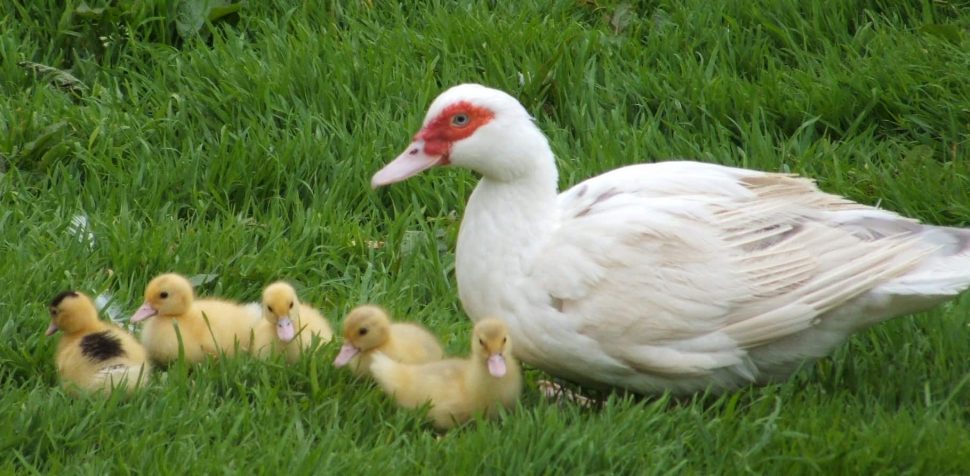Weeks after the Guyana Livestock Development Authority (GLDA) announced that an increased mortality rate among Muscovy ducklings had been recorded, farmers have said that their business is at a standstill.
Farmers yesterday told Stabroek News that they were instructed by the GLDA to halt production until further notice but highlighted that they are experiencing losses daily.
Stabroek News understands that the GLDA is awaiting the results from samples sent for testing in the US at the Cornell University Research Lab. While it is suspected that the illness is Duck Hepatitis Virus, the tests will officially confirm the disease that has ravaged the Muscovy duckling population over the past weeks.
A Berbice farmer, Sherry Haniff, yesterday told Stabroek News that her farm has been quarantined by the GLDA.
“They came and inspect the pen and asked us to disinfect the pen but right now were are not in production and they have asked us to wait,” she said.
Haniff said that the last update farmers received from the GLDA was over a week ago, when the agency informed farmers that they were preparing to send the samples to the US.
The Berbice farmer added that she has reduced her feeding portions to the breeding ducks in a bid to cut costs and prevent them from laying. She said that it was a move she had to take since the cost of production kept climbing and there was no production.
“I don’t know how long more we will have to wait for the results to return and when the results return what will happen. GLDA haven’t tell us anything about financial assistance neither so we keep losing,” she said.
Another farmer, Ronald, told this newspaper that he and several other farmers have been disposing of eggs daily since they were asked to cease operations.
“My feed cost is around $225,000 per week. In order to cut cost, I had to sell some of the ducks to people who retail. I kept a few breeders so when we are given clearance, I still have [ducks] that I can get eggs from,” the farmer said.
He revealed too that his farm was quarantined and he was instructed not to sell any of the ducks from there.
Ronald said the issue is taking too long to be resolved and if by mid- July, they are unable to hatch eggs, there won’t be any Muscovy ducks for Christmas.
He said that from his research and the symptoms exhibited by the ducklings, he suspects the disease to be the Type 1 of the Duck Hepatitis Virus. The virus is treatable by vaccination, he said.
“We are hoping they can have the results soon and we will be able to know what the disease we are dealing with [is]. Everyday farmers are throwing away eggs…” he said.
Due to the suspected Duck Hepatitis Virus, Trinidad and Tobago banned raw and cooked poultry meat from Guyana as a precautionary measure.
Duck Hepatitis Virus is a highly fatal, contagious disease of young ducklings between 1-28 days old.
However, the Guyana Poultry Producers Association and the Ministry of Agriculture have said that the meat from poultry produced in Guyana is safe for consumption.
The GLDA, on May 18th, had issued a notice advising that its surveillance team had seen an increased mortality rate of the ducklings being hatched at its hatchery. The agency said that it had also been told by some farmers that a “similar occurrence was taking place on a number of farms throughout the various regions.”
The high mortality rates were recorded primarily in the Muscovy breed of ducklings, with the ducklings most affected being from the farms that toll hatch at the GLDA hatchery. Consequently, the GLDA closed the hatchery and initiated a surveillance and monitoring exercise.
“We at the GLDA are aware that the economic impact on the duck farming community is going to be huge and we are working assiduously to have this situation rectified at the earliest opportune time,” the GLDA had said.






